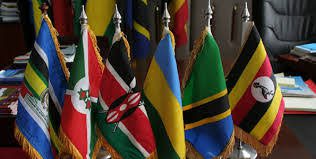Finance Ministers of the East African Community have agreed on a hybrid model that requires each member state to contribute, equally, towards financing the regional bloc’s budget by up to 65 percent, APA learnt on Thursday.
In the wake of this development, observers say the bloc appears to be tired of its dependency syndrome.
External funders of the EAC include Germany, Belgium, Canada, Denmark, Finland, France, Japan, Norway, Sweden, and the United Kingdom.
During the Sectoral Council on Finance and Economic Affairs which concluded a two-day retreat in Kenya’s port city of Mombasa earlier this week, it was agreed that the remaining 35 percent will be contributed based on the assessment of their average nominal GDP per capita for the previous five years as assessed by the World Bank.
With its headquarters in Arusha, the bloc’s six members are Rwanda, Burundi, Kenya, South Sudan, Tanzania, and Uganda.
According to a statement emerging from the meeting it was recommended that the EAC Council of Ministers, the policy making organ of the bloc, approve the model as the new financing mechanism for the six-member organisation.
As noted, the agreement on the new model came after the findings of a study on the required reforms to align the EAC structure, programmes and activities with the financial resources available from its members in order to ensure sustainability of the bloc while addressing the dependency syndrome.
The study identified key priority projects, programmes and activities that can be implemented with available resources now and in the future without slowing the integration momentum as well as identifying constraints with the existing funding structure by member states and development partners that causes delays and, or non-compliance with disbursement obligations.
“After thorough deliberation of the recommendations from the study, the meeting agreed to adopt a model that is simple in terms of parameters to be used on the assessed contribution component and sensitive to principles of equity, solidarity, equality and the size of the partner states’ economies” the statement said.
The ministers also agreed that the proposed hybrid model will be reviewed after three years of its implementation and directed the EAC Secretariat to implement cost cutting measures with a view to rendering the cost of running the organisation as low as possible.
CU/as/APA


